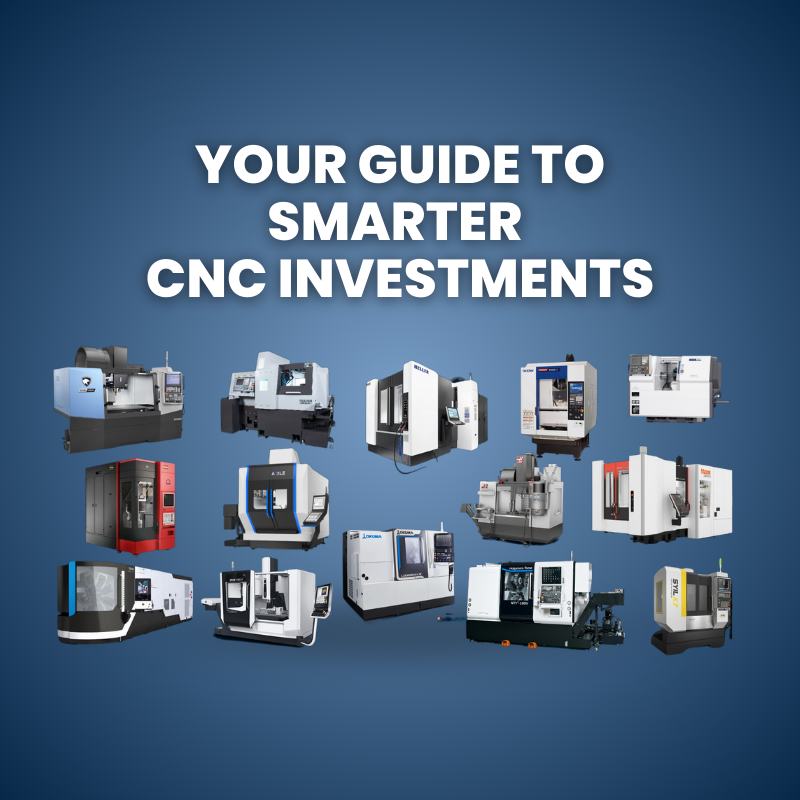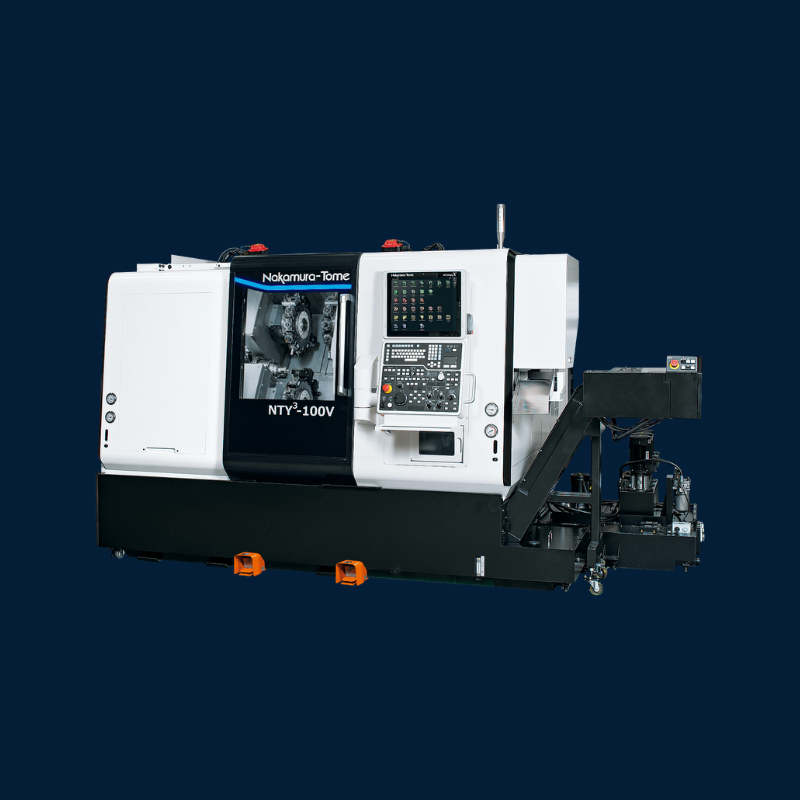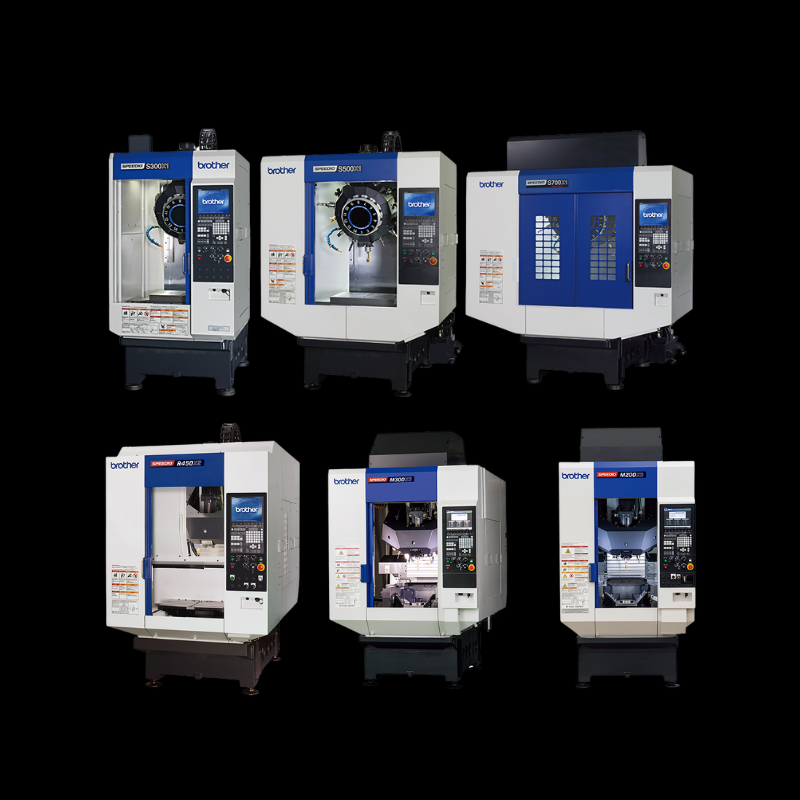Are you looking to drastically enhance your manufacturing precision and efficiency? Kern Microtechnik stands at the forefront of CNC technology, boasting machines that offer unrivaled accuracy and reliability. Let’s delve into how Kern achieves such high standards of engineering and who benefits the most from their technology.
Kern Microtechnik GmbH specializes in high-precision CNC machining centers, designed to meet the rigorous demands of industries requiring extreme accuracy, such as aerospace, medical devices, and microelectronics. Their equipment lineup, featuring the KERN Micro HD, KERN Micro Vario, KERN Micro Pro, Kern EVO, and KERN Pyramid Nano, incorporates advanced capabilities such as micro-milling, 5-axis simultaneous processing, and complex temperature control systems, ensuring precision and consistent operational dependability.
What Sets Kern CNC Machines Apart?
The company’s machines, such as the KERN Micro HD and KERN Pyramid Nano, are equipped with advanced engineering features like:
- Hydrostatic Guide Systems: These systems significantly reduce wear and tear, maintaining machine precision over extended periods and under intense operational demands.
- Sophisticated Temperature Management: By managing machine temperature actively, Kern prevents thermal expansion from affecting machining accuracy, crucial during long or complex production cycles.
- High Dynamic Stability: Important for high-speed operations, this feature ensures minimal vibration, maintaining impeccable surface quality and dimensional accuracy.
How Does Kern Innovate with Customer Feedback?
Kern’s machines play a pivotal role in industries where precision is non-negotiable as in aerospace, medical devices, and microelectronics. Kern has consistently prioritized customer feedback in the evolution of their CNC machines, leading to several innovative practices.
One key practice is direct customer engagement, where Kern involves customers early in the design process to ensure the final product meets their specific needs. Another strategy is continuous improvement, where feedback loops from customer usage help Kern refine their machines, leading to ongoing enhancements in both hardware and software aspects. Additionally, Kern offers comprehensive training programs that ensure customers maximize the benefits of their Kern machines, enhancing both productivity and satisfaction.
These efforts collectively contribute to Kern’s reputation for reliability and customer-centric innovation.
What Materials Can Kern CNC Machines Handle?
Kern CNC machines are engineered to handle a broad spectrum of materials, here's a closer look at the materials Kern machines can process:
- Metals: Kern CNC machines are adept at processing a wide range of metals from aluminum and brass to harder metals like titanium and stainless steel.
- Plastics and Composites: Kern machines can precisely cut and shape various plastics and composite materials, ensuring smooth finishes and tight tolerances.
- Ceramics and Glass: The ability to handle brittle materials like ceramics and glass is a testament to the precision control of Kern machines.
- Precious Metals: In industries like jewelry making or dental device manufacturing, working with precious metals requires not only precision but also a gentle handling process to minimize material waste and damage.
- Advanced Materials: Kern is also capable of machining high-tech materials such as graphene and other nano-materials, which are increasingly used in cutting-edge research and development sectors.
The capability of Kern CNC machines to process such a diverse set of materials is facilitated by their advanced design features, including adjustable tooling, variable pressure settings, and precise temperature control.
How Precise Are Kern CNC Machines?
Precision and tolerance are at the heart of what makes Kern CNC machines highly regarded in the precision machining industry. Kern machines are designed to meet exceedingly strict tolerance requirements, essential for industries where even the slightest deviation can compromise the entire project. Here's an overview of the precision and tolerance capabilities of Kern CNC machines:
- Ultra-Precise Tolerances: Kern machines can achieve tolerances as tight as less than 2 microns, which is critical for applications in microtechnology, aerospace engineering, and precision medical devices.
- Consistent Accuracy: Thanks to their robust construction and advanced technology, Kern machines maintain this high precision over long production runs and under various operational conditions. This consistency is pivotal for industries that require uniformity across large batches of parts.
- Surface Quality: Kern's advanced milling technology not only focuses on dimensional accuracy but also on achieving superior surface finishes. This is particularly important for optical components and molds used in high-gloss applications where surface imperfections are unacceptable.
- Micro-Milling Capabilities: The ability to perform micro-milling allows Kern machines to operate on a range of materials with complex geometries and fine details, further enhancing their applicability in precision-focused industries.
- Thermal Stability: To maintain accuracy during prolonged machining operations, Kern machines incorporate sophisticated temperature management systems. These systems help to mitigate the thermal expansion that could otherwise lead to deviations in measurements.
The specific precision and tolerance levels required will depend on the particular industry and application. However, Kern's technology is designed to be versatile enough to adapt to various needs, ensuring that whether a manufacturer is working on small, intricate watch components or large aerospace parts, the Kern CNC machine can meet their exact specifications. This adaptability not only makes Kern machines an asset in a diverse range of industries but also underscores their reputation as leaders in precision CNC machining.
Specifications of Kern CNC Machines
Kern CNC machines are designed to handle a variety of workpiece sizes and weights, making them suitable for industries with diverse manufacturing requirements. Here's a detailed look at their capabilities:
- Maximum Workpiece Size:
- KERN MICRO HD, KERN MICRO VARIO, KERN MICRO PRO: Max X-axis travel is 350 mm, Y-axis travel is 220 mm, and Z-axis travel is 250 mm.
- KERN EVO: Max X-axis travel is 300 mm, Y-axis travel is 280 mm, and Z-axis travel is 250 mm.
- KERN PYRAMID NANO: Max X-axis travel is 500 mm, Y-axis travel is 500 mm, and Z-axis travel is 400 mm.
- Weight Handling Capacity:
- KERN MICRO HD, KERN MICRO VARIO, KERN MICRO PRO: Max clamping weight is 50 kg.
- KERN EVO: Max clamping weight is 35 kg.
- KERN PYRAMID NANO: Max clamping weight is 250 kg.
- Precision Across Sizes: Kern machines maintain high precision regardless of workpiece size, thanks to advanced stabilization and vibration damping technologies.
- Flexibility in Configuration: Kern machines offer various configurations to suit different sizes of workpieces. For example, different table sizes and interchangeable fixtures allow customization based on workpiece dimensions and weight.
- Compact and Efficient Design: Despite their robust capabilities, Kern machines are designed to be compact and efficient, maximizing workspace while minimizing the footprint. This is critical for facilities with limited space but high demands for precision and capability.
By providing detailed specifications on dimensions and weight capacities, Kern ensures users can match their specific needs with the right machine for optimal performance and results. This adaptability makes Kern machines favored in high-precision industries, where the ability to accurately machine large and heavy components is as important as the precision for smaller parts.
Which Kern CNC Machine Is Right for You?
Here is a summary of the different Kern CNC machines:
KERN MICRO HD
Precision and Performance: This machine is designed for high-precision serial and prototype production, setting new standards in precision, stability, dynamics, and freedom from wear.
Key Features:
- Compact design with a footprint of less than 5 sqm.
- High stability with advanced temperature management.
- Integrated linear motor drives for high dynamics and productivity.
- Innovative micro-gap hydrostatics for wear-free operation.
- Equipped with a tool changer for up to 210 tools and 60 workpieces.
- Suitable for multi-shift operation without the need for an operator.
- Certified interfaces for accessories and automation systems.
Applications: Ideal for extreme precision requirements and high-volume production with minimal reject rates and low maintenance costs.
KERN MICRO VARIO
Flexibility and Precision: This ultra-compact machine is highly configurable, offering the flexibility needed for various applications, including graphite and zirconia machining.
Key Features:
- Compact design with a footprint of only 4 sqm.
- Advanced temperature management for supreme stability.
- High productivity with unmatched accuracy.
- Integrated tool changer for up to 210 tools and 60 workpieces.
- Suitable for multi-shift operation without an operator.
- Certified interfaces for additional accessories and automation systems.
Applications: Perfect for industrial environments requiring high precision, reliability, and flexibility.
KERN MICRO PRO
Efficiency and Stability: Aimed at serial production, this machine focuses on reliability and stability while maintaining high productivity.
Key Features:
- Small footprint of 4 sqm.
- Easy integration into existing processes.
- High dynamics and productivity with proven components.
- Integrated tool changer for up to 210 tools and 60 workpieces.
- Suitable for multi-shift operation without an operator.
- Attractive purchase conditions and maintenance costs.
Applications: Best suited for serial production of precise parts, offering a balance of productivity and cost-effectiveness.
KERN EVO
Evolutionary Precision: Resulting from years of development, the KERN Evo offers maximum precision and productivity, especially for micro- and watch-parts production.
Key Features:
- High running stability and excellent surface quality.
- Capable of high acceleration and travel speeds.
- Direct position-measuring systems for maximum repeatability.
- Optional 4th and 5th axis without sacrificing stability and precision.
Applications: Ideal for high and medium part quantities, providing a price/performance benchmark in high-precision machining.
KERN PYRAMID NANO
Ultimate Precision: Designed for applications that require the highest precision and surface quality, even for larger workpieces.
Key Features:
- Hydrostatic bearings for virtually wear-free precision.
- High acceleration with excellent vibration damping.
- Integrated workpiece changer for unmanned operation, including 5-axis simultaneous machining.
- Optional coordinate grinding package for efficient milling and grinding in a single clamping.
Applications: Suited for the most demanding tasks in both industrial applications and research and development, offering unparalleled precision and productivity.
These summaries highlight the key features and applications of each KERN CNC machine, helping users select the right machine for their specific needs based on precision, productivity, flexibility, and cost considerations.
Can Kern Handle High Production Volumes or Just Prototypes?
Kern CNC machines are renowned not only for their precision but also for their adaptability to different production volumes and batch sizes. Here's how Kern machines manage different production volumes:
Small to Medium Batch Production: Kern machines excel in handling small to medium batch sizes, where the focus is on precision and complexity rather than sheer volume. Kern’s machines are designed to quickly switch between setups, reducing downtime and enhancing productivity even when producing smaller quantities.
High-Volume Production: While traditionally known for their prowess in high-precision, low-volume scenarios, Kern has also engineered their machines to be efficient in larger production runs. Features like automated tool changers, advanced programming capabilities, and robust construction allow Kern machines to operate continuously, maintaining high precision throughout extended production periods.
Scalability and Flexibility: One of the key advantages of Kern machines is their scalability. With modular designs and customizable software and hardware options, these machines can be adapted as production needs evolve. Whether scaling up for a large order or adjusting to a more diversified product line with varying batch sizes, Kern machines can accommodate these changes efficiently.
Automation Integration: To further aid in managing different production volumes, Kern machines can be integrated with automation systems. This includes the use of robotic loaders, conveyors, and automated quality control systems, which streamline the production process and reduce labor costs, making it easier to scale operations up or down based on demand.
Consistency Across Batches: Regardless of batch size, Kern ensures that each part produced meets the same high standards of quality and precision. This consistency is crucial in maintaining trust and reliability in industries where even minor discrepancies can have significant consequences.
Kern CNC machines are thus not only tools for precision machining but also solutions for flexible manufacturing strategies. Their ability to adapt to different production volumes without compromising on quality or efficiency makes them an invaluable asset for any company aiming to stay competitive in the dynamic manufacturing landscape.
What Advanced Features Do Kern CNC Machines Offer?
The integration of automation and additional advanced features in CNC machines significantly enhances their efficiency, precision, and ease of use. Here’s a detailed look at the level of automation and the advanced features that Kern provides:
- Automation Capabilities: Kern machines often include options for full automation, which can range from simple tool changers to complex robotic systems capable of handling multiple tasks such as loading, unloading, and sorting of parts. This automation is important for reducing human error, increasing production speed, and enabling 24/7 manufacturing operations without significant increases in labor costs.
- Advanced Tool Management: Many Kern machines come with sophisticated tool management systems that not only store a large number of tools but also automatically monitor tool wear and breakage. This feature ensures optimal machine performance and reduces downtime by preemptively managing tool replacement.
- Precision Control Systems: Kern machines are renowned for their high-precision capabilities, supported by state-of-the-art control systems. These include real-time feedback mechanisms and adaptive control technology that can adjust machining parameters on the fly to maintain accuracy and optimize cutting conditions.
- Thermal Stability Features: Given that thermal expansion can affect machining precision, Kern incorporates advanced thermal management systems into their machines. These systems regulate the temperature of critical machine components, thus ensuring that variations in ambient temperature or heat generated during the machining process do not compromise product quality.
- Software and Connectivity: Modern Kern machines are equipped with the latest software solutions that offer enhanced programmability, data analytics, and connectivity options. These features allow for better integration with factory systems, easier remote monitoring, and more efficient workflow management.
- Customization Options: Recognizing that different industries and applications may have unique requirements, Kern provides extensive customization options for their machines. This includes varying spindle speeds, multiple axis configurations, and specific fixture and tooling adaptations tailored to customer needs.
- Quality and Inspection Modules: Some Kern machines can be equipped with in-built inspection and quality control modules that use advanced imaging and probing technologies. These modules perform on-the-spot quality checks during the machining process, reducing the need for separate inspection steps and ensuring that each part meets stringent quality standards.
These automation and feature enhancements not only streamline the manufacturing process but also significantly increase the capacity of Kern machines to handle complex and varied tasks efficiently.
What Should You Consider Before Investing in a Kern CNC Machine?
Investing in a Kern CNC machine involves careful consideration of both the initial purchase cost and the ongoing operational expenses. Kern’s high-precision machines, while representing a significant upfront investment, are designed for efficiency and durability, impacting long-term operational costs. Understanding the full financial implications is important for making an informed decision. Here’s a breakdown of the budgetary considerations:
- Initial Purchase Price: Kern CNC machines are among the premium products in the market, known for their advanced technology and unmatched precision. The cost varies significantly based on the model, specific configurations, and customizations required. Potential buyers should carefully match their specific needs with the appropriate machine features to avoid over-investing in unnecessary capabilities.
- Installation and Setup Costs: Beyond the purchase price, installation and initial setup can also incur costs. This includes shipping, physical installation, and the integration of the machine into existing manufacturing systems. Training for staff on how to operate and maintain the new machine also adds to the upfront costs.
- Operational Costs: Running a CNC machine like those offered by Kern involves various operational expenses. These include power consumption, maintenance, tooling, and replacement parts. Kern machines are designed to be energy-efficient and have lower maintenance needs due to their high-quality construction and advanced technology, which can mitigate some of these ongoing costs.
- Maintenance and Service: Regular maintenance is vital to keep a CNC machine operating at peak efficiency and to prevent costly downtime. Kern offers comprehensive maintenance services, and while this represents an ongoing cost, it also ensures that the machine continues to perform optimally. Service contracts and extended warranties can also be part of the budget planning.
- Tooling and Consumables: The cost of tools and consumables depends on the type of materials being processed and the specific applications the machine is used for. High-precision components, especially those requiring specialized materials for tools, can add significantly to the operational costs.
- Software and Updates: Software is a critical component of modern CNC operations. Kern machines operate with sophisticated software that may require regular updates or subscriptions to access the latest features and improvements. Budgeting for software licensing and updates is essential for maintaining the capabilities of the CNC machine.
- Residual Value and Depreciation: One often overlooked aspect of investing in high-quality machinery like Kern’s is the residual value. These machines tend to depreciate slower than less robust models due to their longevity and ongoing support, potentially offering a better long-term return on investment.
When planning the budget for a Kern CNC machine, it’s advisable to consider both the immediate financial outlay and the long-term operational costs. An accurate understanding of these factors will help ensure that the investment aligns with the organization's financial capabilities and manufacturing needs, providing value for years to come.




